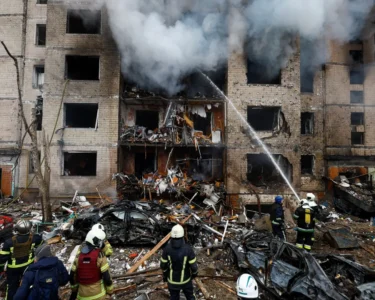Pakistan has been a country where the public voice has received little acknowledgement and therefore many have lost hope with the system and rely on a system of self-applicable justice, where they prefer to take the matters into their own hands rather than putting their faith in the system for justice. PM Khan, who had previously took a similar step towards accountability with a citizens portal app for KPK, introduced the system nationwide so that people could register complaints of all forms to the government which could be later acted upon. What followed are two sides of a story, where some found the app to be helpful while others found it a gimmick to wrongly convince people that the government was looking into matters. citizens portal app in Pakistan.
According to SAMAA TV, the citizens portal app was a success and numerous lodged complaints were dealt with as soon as possible:
‘There was a complaint that the ICT online vehicle verification system of the excise department was not functional for several months. People can now complaint on 0262777 and 0163012.
One individual’s smart card for his vehicle had not been printed, despite several visits to the excise department. SMS alerts are now sent so individuals only visit once after their smart card is ready.
A citizen complained that the family members of out-city patients admitted at PIMS and Polyclinic Hospitals are facing difficulties as they have no place to stay. A shelter home was then established.’
These are examples of work done with the help of the citizens app which comes to show that the citizens portal app was more of a success than a failure. However, then there is the other side to the story.
Data from the dailytimes shows the efficiency of the app:
Joudat Ayaz was informed that 6,738 complaints regarding different departments of Rawalpindi have been received, 48 percent of them which makes 3,243 are resolved.
Similarly, 1,025 complaints were received in Attock, where 47 percent complaints are resolved while 537 complaints are still pending.
Must Read: Meeting with Huawei executives to take place at the White House
Data shows that the performance of district administration of Chakwal is very poor as compared to other districts of Rawalpindi where only 20 percent complaints received on portal are resolved until date. A total of 852 complaints are received in Chakwal where only 178 of them are resolved.
According to this, in majority of the areas less than half of the complaints are being resolves. Although, this rate is evidence of something being done for the public and something is better than nothing, but a point to notice is that half of the complaints are still pending which shows the inefficiency of the app of not being able to handle such requests and lack of proper administration of the app that led it to this point.
The primary reason for the inefficiency of the app can be blamed upon the lack of education. Majority of our population lives in rural areas where although there have been steps taken to encourage education in younger people, the output is not strong enough to show that people would find it easy to navigate or even access the app in the first place. Educating such people is extremely necessary if it is to make a difference because rural areas are quite blatantly ignored by administrations and it was time that they received the kind of attention that is necessary for the development of such places and only then can the implementation of such a citizens portal app can make sense, when the CITIZENS are able to USE the app themselves.
Secondly, such an app for a population this high means that a lot of people are needed behind the app to carry forward its main purpose. The app gave Pakistanis a way to register all sorts of complaints which meant that people were going to lash it all out and in order to address all complains we need the numbers to do that, which unfortunately we didn’t have. As the above data suggests, very few of the total complaints were registered and resolved while a whole lot of unresolved issues still exists. In such a scenario the management didn’t show the willingness to hire more people to work in coordination to get all those unresolved issues resolved and is a major reason for the failure of the app.
Lastly, the lack of confidence in the justice system has the led the people to believe the app as a PR stunt and nothing more than that. People of Pakistan are not particularly renowned for relying on the government for justice and thus have found ways to deal with problems themselves, that often includes illegal ways, but when the government is so slow to respond to the public’s problems the public resorts to such ways. The government should have first tried to establish itself as a reliable and faithful servant of the public before releasing an app that would require the public to trust the government with the problems they face with the system.
All-in-all, the app was a very good idea which lacked the proper sense of implementation and lost its way in the middle. It ticked the right objectives but it is not that simple to release apps in Pakistan when the public has such issues of lack of awareness, or lack of trust in the government. The portal app could be a lifesaver for some but uptil now majority have not been impressed by its performance. The government could re release this app but before that it would need to create the awareness and importance of registering complaints and not using illegal ways or loopholes to get the job done. This way, the people would be willing to listen and work on this app with the government to make it as useful as it was initially aimed to be.



